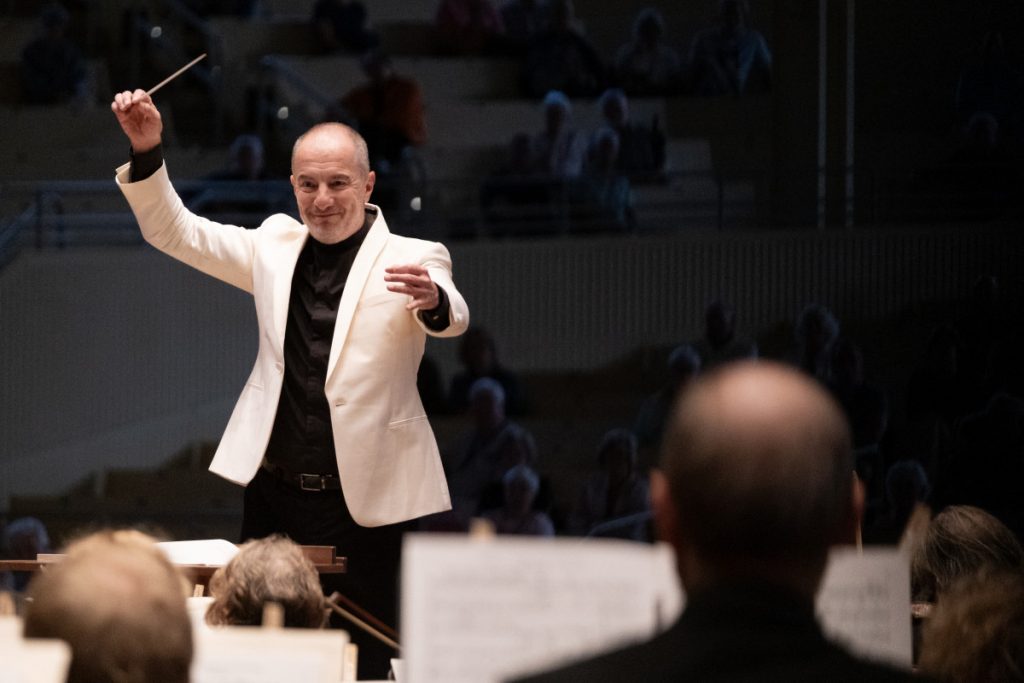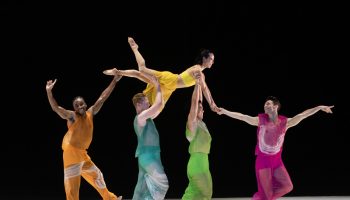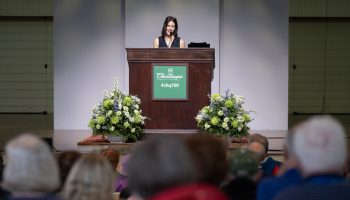
Sarah Russo
Staff writer
Paris may be nearly 4,000 miles away from Chautauqua Institution, but tonight, the city and its history can be experienced just steps away.
The Chautauqua Symphony Orchestra’s program for this evening features three pieces each with a connection to the City of Lights during “a very turbulent time of its history,” said Rossen Milanov, music director and principal symphonic conductor for the CSO, which will begin its performance at 8:15 p.m. tonight in the Amphitheater.
He said pieces for tonight’ program, particularly Wolfgang Amadeus Mozart’s Symphony No. 31 in D Major, and Joseph Haydn’s Symphony No. 82, were composed and “custom tailored to the taste of the audience at the time.”
During the late 1780s, Paris was considered “the style capital of Europe” representing “the way people would dress … and all the extravagant tastes (and) lifestyle.”
The pieces were still developing and changing when first composed, so it made sense for composers to alter the piece for every performance. And some audiences may have been “a little bit more extravagant in taste” which would require adjustments.
“Both Mozart and Haydn created symphonies that perhaps are a little bit more fitting into that particular expectation of brighter, bigger orchestras than what they had used before in Vienna,” Milanov said, “and perhaps even more use of musical contrast as the way the musical themes were put together in each one of these works.”
As a songwriter or performer might workshop something in front of a live audience, then alter it based on the reactions, in their time, composers would also account for the way their music was received.
“The ink was still fresh on the stage, because the idea of classical music was very different from what we understand now,” Milanov said. “We refer to classical music (as) something that was composed 100 years ago … (and) has a certain museum quality, rather than reflecting the times in which we live.”
The program features a smaller chamber-like CSO ensemble, partly because of the compositions, but also because other CSO musicians will be performing alongside Chautauqua Opera Company for La Tragédie de Carmen.
To begin the evening, the CSO will open with Joseph Bologne’s L’amant Anonyme Overture.
Not only was Bologne a “fantastic composer,” but he was also a Parisian celebrity in a way as a “spectacular violin player, a fencer, a philosopher and a type of a Renaissance man that had quite a bit of an impact on his time,” Milanov said.
Of the six operas he composed, Bologne’s L’amant Anonyme Overture is the only surviving composition. Originally a play adapted to opera and set to music, the story includes an unusual love triangle with only two characters: the heroine Léontine and her friend Valcour, who is also her secret admirer.
Next, the CSO will perform Hadyn’s piece, later nicknamed “The Bear,” for its finale, featuring droning bass and country carnival atmosphere reminiscent of dancing bears.
Popular with Europeans in 1786, when Symphony No. 82 was written, ensuing traditions endured, even through Milanov’s own childhood in Bulgaria.
“Normally, a bear handler would pass through town and play some sort of a string instrument and the bear would just (be trained to) dance,” he said.
Finally, the program will conclude with Mozart’s piece also referred to as the “Paris” symphony. At 22 years old in 1778, he composed Symphony No. 31 at the request of the director of a public concerts series, and each of the three movements capture Parisian taste and style through its score.
An ode to the history of Paris during a particular period of about 10 years, Milanov thinks of this program as “a little cultural capsule.”




